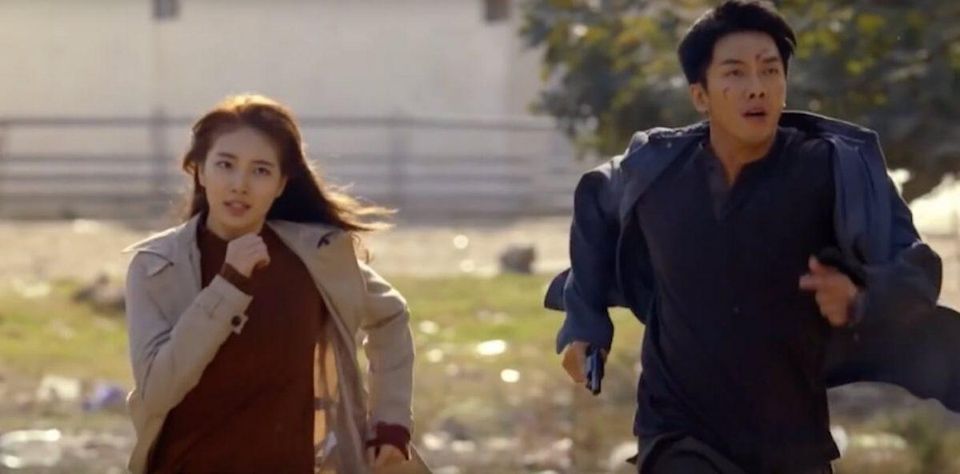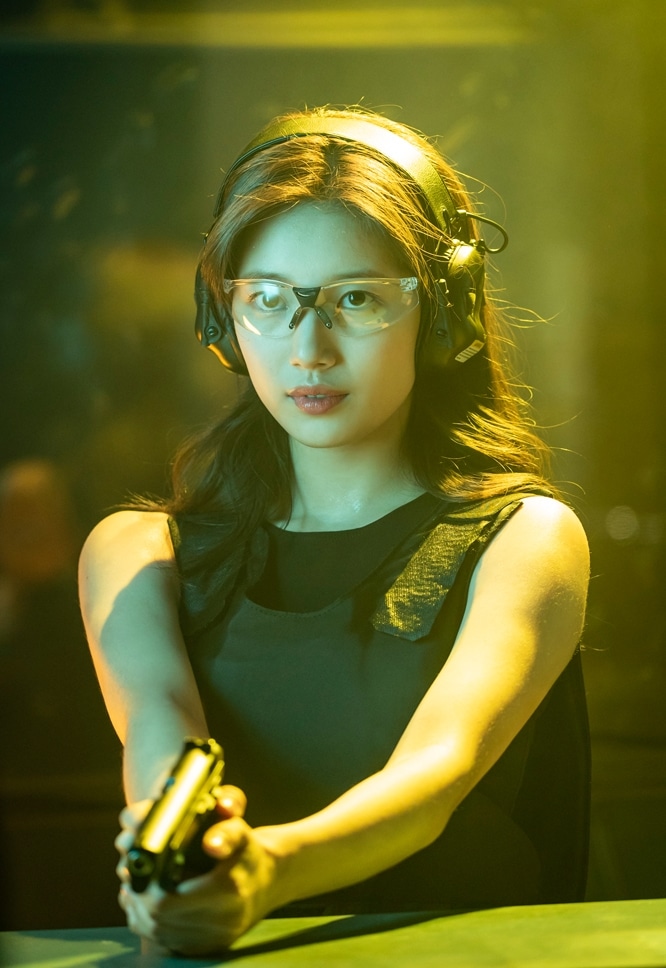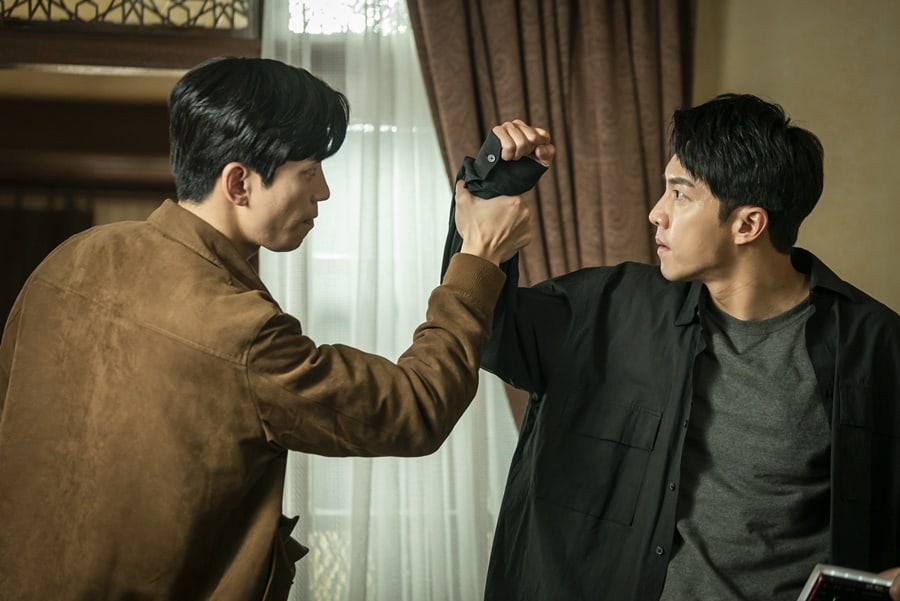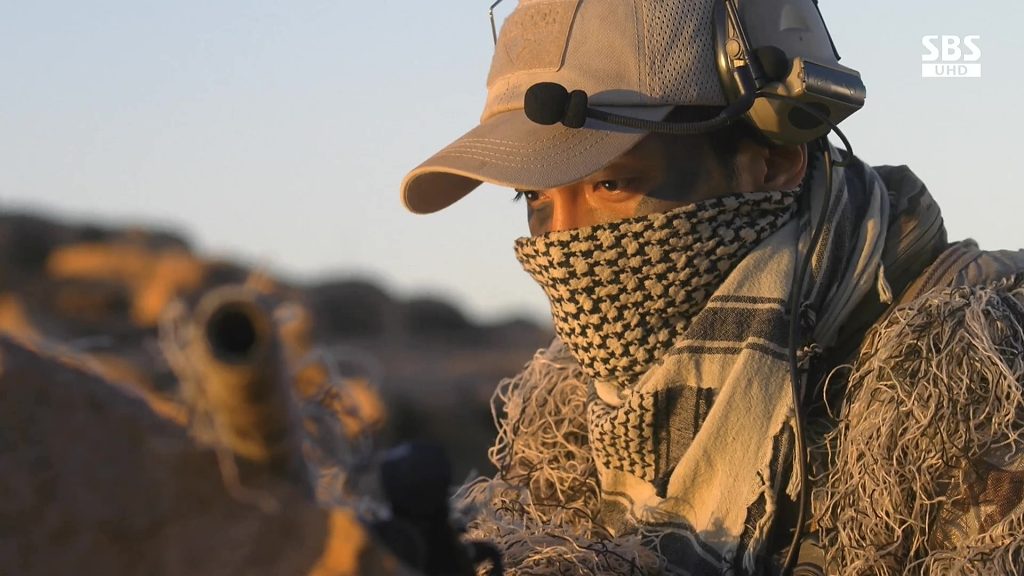
The Netflix blockbuster Vagabond has come to an end, leaving many of its audience in need of answers. With a big budget of over $20 million, a star-studded cast, three filming countries, good ratings throughout, and an international platform, the drama came with varied strengths and weaknesses.
The plot revolves around Cha Dal-geon (Lee Seung-gi), a stuntman seeking revenge for his nephew’s death in a plane crash accident, one which resulted in the death of 200 people and regarded as a national tragedy. The families of the victims are flown over to attend their loved one’s funeral and upon arriving, they are met by Go Hae-ri (Bae Suzy), an undercover NIS agent assigned to chaperone the victims’ families on their stay.
From an apology video sent to him by his nephew, the stuntman quickly discovers the accident was planned and is caught up in a chase with the possible culprit. When Cha Dal-geon’s claims disregarded, he takes matters into his own hands as a way of coping with grief. Driven by anger and a need for answers he is left with no choice but to turn to Go Hae-ri to help solve this conspiracy. Hooked by her desire for promotion, the pair go on against the tide to uncover the truth at all costs.
Though Vagabond is heavy on the action, it is centred around the narrative of corruption: illegal relations and deals that the government and conglomerates engage in together without remorse, costing innocent people’s lives. Though the government begins as mere damage control for wealthy conglomerates, its role slowly unfolds as an equal to — if not worse — the corruption of the companies.
The audience is introduced to each of the conspirators, but not their level of involvement. Revelations are made to the audience steadily, enough to keep suspense yet not lose touch of the pace. The subplots act as layers in the drama, peeling enough away each week to find the centre of this operation.
What kept the drama from slipping into a shorter series that could have ended in the 10th episode or so is the fact that the corruption was all-inclusive. The narrative is driven by trusted members of the institution, led by greed, manipulation, and deceit, and in pursuit of power and money. Accumulating a list of bad guys and seeing how they execute commands from an unknown source leaves the audience never 100% sure that it’s the end of the food chain.

The first couple of episodes included much of the information and background stories to set the scene for the audience. However, viewers quickly expressed mixed reactions to Suzy’s acting skills. Throughout the drama, Suzy does not surpass expectations, nor did she fail at portraying Go Hae-ri. On the surface, Go Hae-ri comes across as impromptu and shallow, but when push comes to shove she is dedicated and loyal to her cause. What was unconvincing, however, was Lee Seung-gi’s emotional scenes. Though the scenes were quite moving, his expressions felt forced and disconnected. It’s no doubt his stunts and fast-paced scenes were entertaining, but some of his more emotional portrayals felt stiff.
The drama draws most of its strength from the action-filled episodes. The thriller aspect of the drama is simplistic, serving up mindless entertainment, which may excuse some of the acting to a certain extent. In comparison to the strength of the action scenes, the development of the main characters varied in effectiveness. With plenty of screentime, Cha Dal-geon had a lot of room for character development and focus despite the number of ongoing subplots. Go Hae-ri, on the other hand, was given only as much as was necessary to develop Cha’s character.

From the little we know, she is the head of her family after the death of her father who was in the marines. Her father’s passing is also the reason for her sense of patriotism and duty. Though the audience is aware of her story, her character is explored only in relation to Cha Dal-geon’s case.
What was pleasant, on the other hand, was the way that their relationship developed slowly, and not in a particularly forthright manner. It was enjoyable how the pair were not rushed into romance, and how the drama kept true to the main plot as the focus. Their relationship grew out of comradery and mutual goals that turned into infatuation. Even then, no real confession of feelings are made, but rather, their feelings are shown through their love and care towards each other.
Vagabond consisted of several subplots to include its many stars. However, Gi Tae-ung‘s (Shin Sung-rok) character, a binary role to Cha Dal-geon, was a tricky one. His character had plenty of potential, but was overshadowed by the culminating events, leaving no room for him to showcase more of his role. His sliding back and forth, between what is right and being a public servant with orders to adhere to, could have made for an intense character.
Some aspects of the drama are particularly unique and memorable. The wide aerial scenic shots of the international locations helped set the action thriller atmosphere, especially scenes of Cha Dal-geon in Morocco in his well-advertised jumping scenes and car chases.
Another memorable segment of Vagabond is episode 12’s chase scene from the port to the courtroom, in which the characters attempted to get the pilot in time to confess. The build-up towards the end of the struggle for justice, and the way the odds were stacked against the protagonists and the last-minute vigilantes, were all reminiscent of the styles of so many Hollywood blockbusters: The Expendables, Mission Impossible (all of them), any Bruce Willis film, and even The A-team.

As the finale of Vagabond aired, the drama trended on social media, as it posed major issues for the audience. Korean drama fans are no strangers to rushed endings. However, this drama was problematic in its choice of ending. Within the space of an hour, Cha Dal-geon is dead to the world but lives as an assassin. Go Hae-ri jumps from NIS undercover agent to becoming a rookie for Jessica in pursuit of revenge for Cha Dal-geon’s death. The switch-up in the direction of the narrative for several characters was unanticipated and rushed.
To add to the audiences’ frustration, the last scenes returned to the beginning of the drama; Cha Dal-geon in a desert as a sniper in position to take the order to execute an oncoming target in a limousine. Upon discovering his target is none other than Hae-ri, he is frozen and unable to execute the task. The scene gave the impression of further explanation to be provided throughout the drama, but it simply added more loose ends.
The ideas are all well and good, though it could have used a few extra episodes to iron out some issues and tie loose ends. It seems as though the writers were looking for a more realistic “You can’t always get all the bad guys” approach to the end. Still, the conclusion does not follow the unrealistic approach that was taken throughout the drama, which leaves the audience thinking about the possibility of a season to follow. The cast and the team have made a comment in reply to fans’ demand for an explanation saying they are not aware of a second season.

Lee Seung-gi has also recently commented that despite the difficulty of the role, he is happy to fulfil fans’ wishes for a second season. However, the decision for a sequel does not lie with him. After the delays and elongated Netflix negotiations for the first season to air, it does seem difficult for a second season to happen. There have not been any finalised comments on the matter yet. Although the drama is riddled with plot holes and does not provide closure in the following season, Vagabond was undoubtedly entertaining — even if it was purely for the action. Its ending has left fans with all their fingers crossed for a second season of resolutions.
(Naver. Images via Netflix, SBS.)


